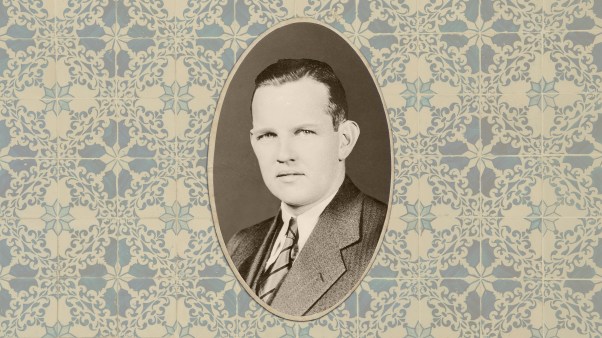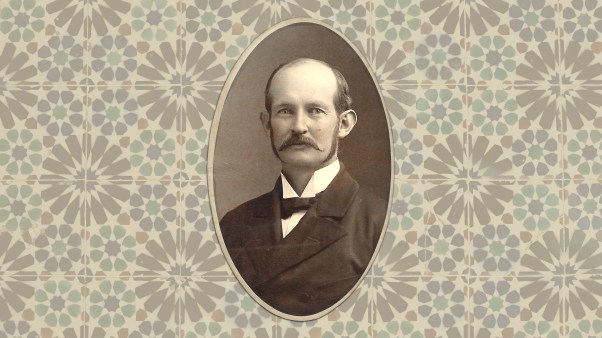It’s high time we have an honest conversation about THC, or tetrahydrocannabinol—the main psychoactive compound in cannabis, also known as marijuana or weed. For years, people consumed cannabis almost exclusively by smoking the plant. Inhaling marijuana, whether by smoking or vaping, remains the dominant mode of using THC by a significant margin (nearly 80 percent of users). But the ability to dose THC this way is very difficult. Variables like the packed density of the burn, the depth of an inhale, and the amount of THC in any given hit make it nearly impossible to measure. The result is an imprecise method of intake, with inconsistent, often unpredictable effects.
Although inhalation remains the main method of consumption, it’s no longer the only one. THC is now available in a variety of “dosed” allotments and consumables: gummies, oils, topicals, beverages, and so on. A month ago, while staying overnight at a hotel, I reached into the mini-fridge to grab a late-night drink. I thought I had grabbed sparkling water, but my eyes caught the THC lettering on the can right before I popped the top. You can now drink, cook with, apply, and eat THC products.
A survey from Christian Standard Media says pastors overwhelmingly disapprove of marijuana use. Roughly 78 percent agree that “it is morally wrong to get high smoking marijuana.” But Christian leaders must understand that popular use of THC has changed. This doesn’t mean old principles no longer apply, but the questions people are asking, and the considerations around consumption, have evolved dramatically.
Let me put my cards on the table upfront:
- I believe THC can serve as a legitimate alternative to opioids used for managing pain, especially in palliative and end-of-life care.
- I am not in favor of THC being legalized or sold for recreational use in any capacity.
- I believe the faithful Christian should avoid recreational consumption of THC and should give prayerful consideration before using THC if a physician prescribes it.
Historically, most Christian arguments against the consumption of marijuana have been shaped by three factors: It was illegal, inhalation was the only way to consume it, and a customer could not regulate the dosage of THC.
No longer illegal
For years, pastors could counsel against the use of THC on the simple grounds that it was against the law. But that’s no longer the case for a large portion of the country. Many Christian leaders can no longer say, “It is illegal,” because, well, it isn’t anymore.
Still, not everything that is permissible is beneficial. In a different time, in a different context, dealing with a different issue, the apostle Paul wrote to the Corinthians, “All things are lawful for me, but not all things are helpful. All things are lawful for me, but I will not be dominated by anything” (1 Cor. 6:12, ESV). Paul captures the wisdom we need, discerning not just what is permissible but what is good and beneficial and worth giving ourselves to. Christian morality is not bound by what a given society deems legal or illegal. There are many things a society will declare legal that are either immoral, unhelpful, or both.
Take cannabis, for example. While its recreational use may be legal in portions of our country, the data says long-term usage of cannabis products has detrimental impacts on the brain and cardiovascular systems. It negatively impacts cognitive functions (specifically memory) and lowers sperm count significantly in men. The worst effects of cannabis correlate with smoke inhalation or vaping, where the pulmonary impacts can be disastrous.
It may be hard to “take captive every thought to make it obedient to Christ” (2 Cor. 10:5) when you can’t even remember where you parked your car.
“Controlled” dosing
Advocates for THC argue that “controlled” dosing solves the problems caused by recreational use. In the age of cannabis consumables, customers receive assurances that they can self-select how much THC they consume. But there’s a problem: Dosage listings are overwhelmingly inaccurate. One study in the Journal of the American Medical Association found that only 17 percent of tested products had accurately labeled dosage. It turns out it’s more difficult than you might guess to pack just the right number of milligrams into a gummy bear.
The simple fact is that many people interested in consuming THC really want its intoxicating effect. There are no proven health benefits to microdosing with THC, and though the Bible may not directly prohibit the consumption of marijuana, it does prohibit “drunkenness” (i.e. intoxication). Consider Paul’s exhortation in Ephesians 5:18, which says, “Do not get drunk wine, which leads to debauchery. Instead, be filled with the Spirit.”
Controlled dosing of THC, at present, is highly unreliable, and the data has not demonstrated any evidence that consuming cannabis in nonintoxicating doses provides any unique, tangible benefits.
Puff, puff, pasta
It used to be that if you wanted to mix a little marijuana into your Italian-themed dinner night, you’d need to pack a rolling paper and light up; but now you can just drizzle your pasta with some THC-infused olive oil and skip the smoke.
There are thousands of THC-infused consumables on the market now. Why does this matter? Because the stigma surrounding the deleterious effects of smoking has remained. Due to increasing social and cultural pressure, a large amount of health data, and compelling ad campaigns, people associate smoking with recklessness and danger. Public resistance to THC consumption rode the coattails of this stigma.
But that stigma doesn’t touch a gummy. Or a drink. Or a salad dressing. With a whole catalog of consumables available now that don’t require smoking, pastors must prepare to speak to and shepherd those who recreationally indulge in or routinely use THC in formats that no longer seem dangerous. Despite what our culture says, it’s not just what we smoke that matters. Paul writes in 1 Corinthians 10:31, “So whether you eat or drink or whatever you do, do it all to the glory of God.” Whether THC is smoked, eaten, or drunk, is irrelevant. The method matters less than the motive. The deeper question is, “Why are people consuming this at all?”
But what about caffeine, sugar, and…
While I believe dosed and prescribed THC (from a medical professional) could potentially replace opioid-based pain medication, I am not in favor of its legalization or sale for recreational purposes and do not believe Christians should indulge in it recreationally. At the same time, I want to acknowledge common objections to my position and deal with a couple of them in a “lightning-round” format. Have fun with the brevity of it—or don’t. Your choice.
Objection: But what about caffeine or sugar? Can’t their overconsumption also produce negative effects on the body?
Response: Yes. We should monitor and carefully consider overconsumption and overreliance on any substance (especially those with psychoactive properties) Gluttony is the close cousin of intoxication. Gluttons consume more than one ought of something. Drunkards consume too much of what intoxicates. Both gluttony and intoxication are sinful and lead to malformation.
Objection: The Bible doesn’t forbid the consumption of marijuana and it grows from the ground. It’s natural.
Response: The Bible doesn’t forbid the consumption of heroin, and it’s distilled from the dried latex of the poppy. Just because something grows from the ground doesn’t make it wise to consume. The Bible doesn’t prohibit making a poison sumac milkshake, but it would be a foolish thing to do.
Get into the weeds
Christians can land in different places here. But our positions should be rooted in reflection, not naïveté. We should not allow our antiquated conceptions of cannabis to shape the way we teach, counsel, and care around the consumption and use of THC in the daily life of our communities and congregations. There is space to disagree on an issue like Christian freedom and cannabis use, but it is crucial that even if we don’t get onboard with weed, we get into the weeds on the thorny topics facing ordinary Christians under our shepherding care.
Kyle Worley is the lead pastor at Mosaic Church in Texas, a cohost of the Knowing Faith podcast, and the author of Home with God and Formed for Fellowship.









